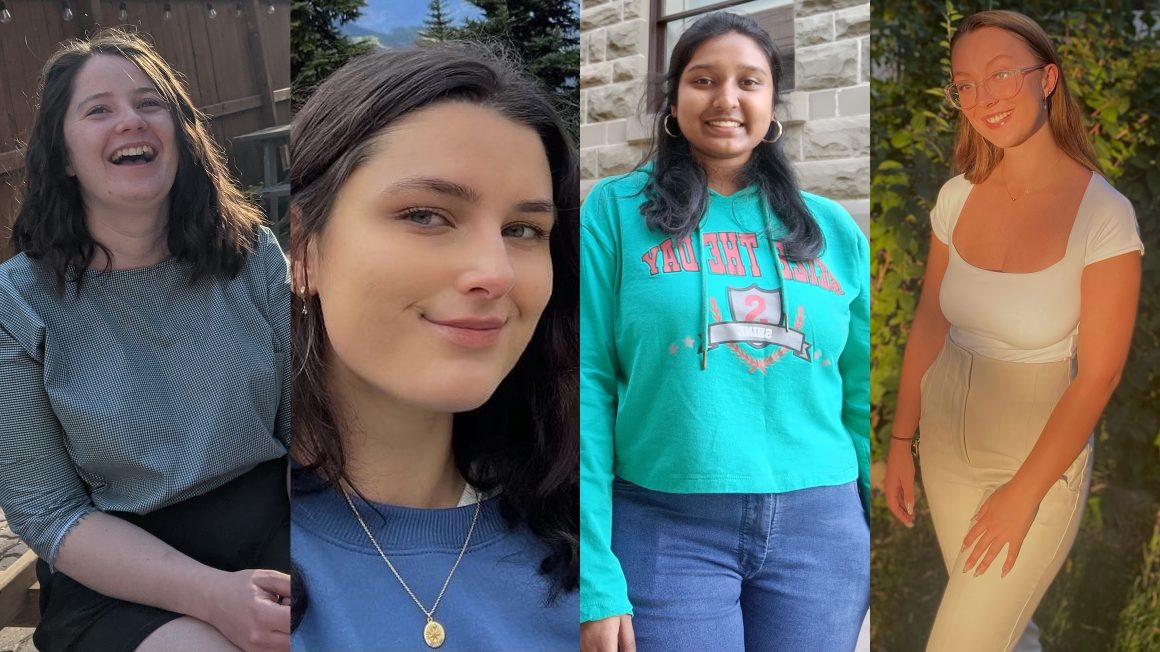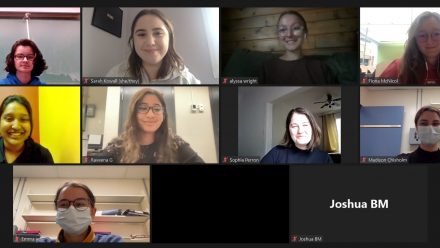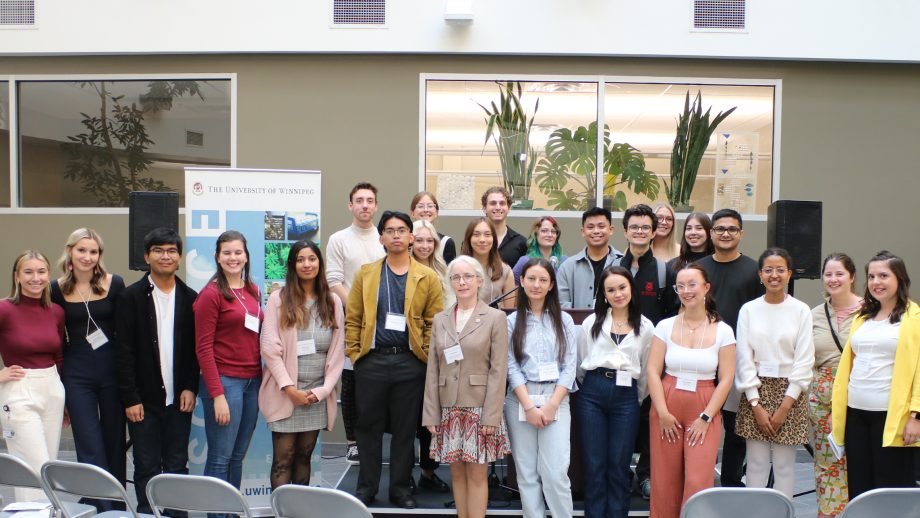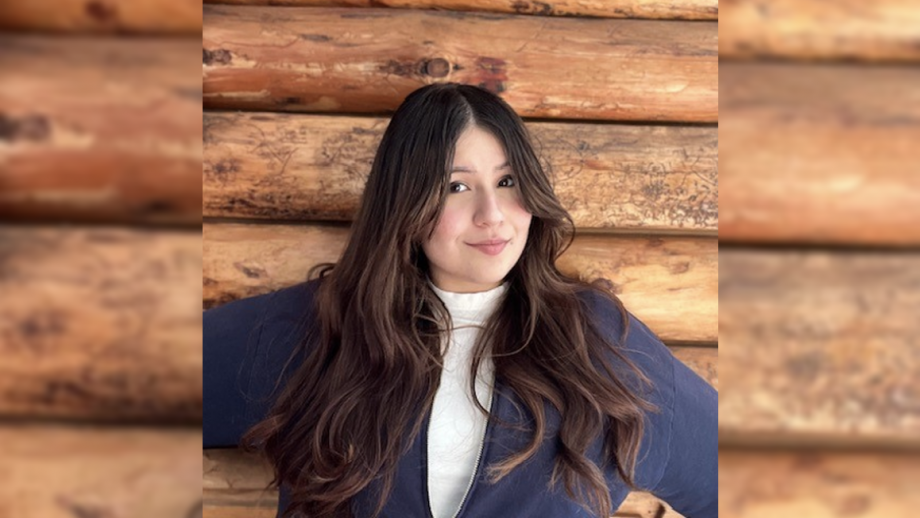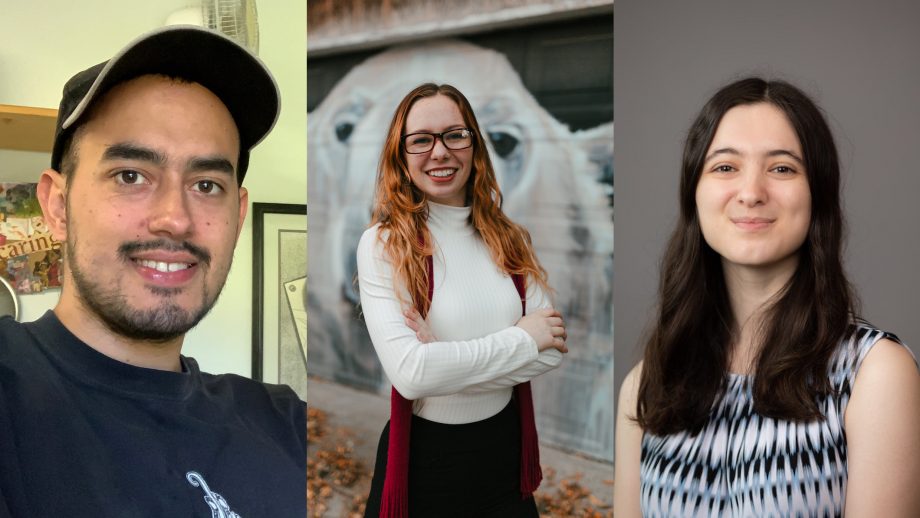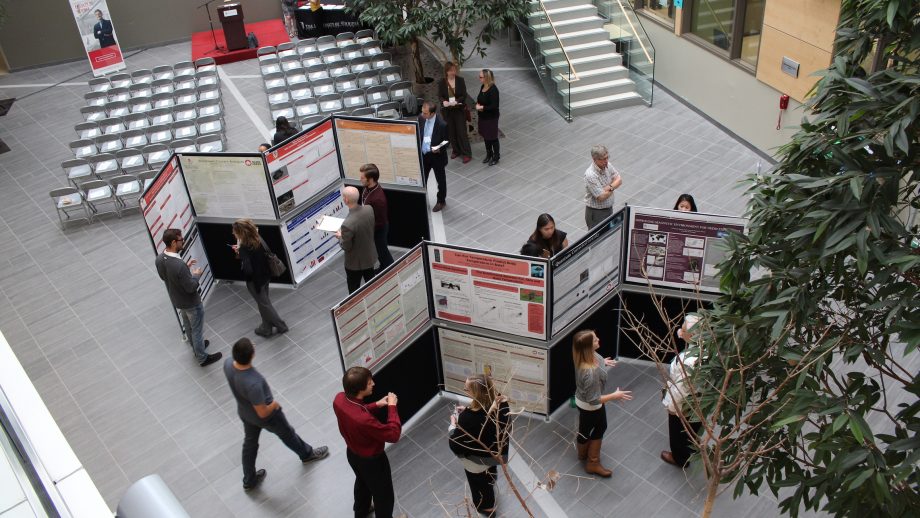Some of the best undergraduate research in social sciences, biological and environmental sciences, experimental physical sciences, and mathematics and theoretical physical sciences was on display during The University of Winnipeg’s 17th Randy Kobes Undergraduate Poster Symposium.
The annual event gives students the opportunity to gain experience presenting their scientific research, while also learning more about the exciting research their peers are undertaking.
“The Randy Kobes Symposium is always an opportunity to celebrate the fantastic undergraduate student research that happens in the Faculty of Science,” said Dr. Nora Casson, Canada Research Chair in Environmental Influences on Water Quality and Associate Professor in the Department of Geography. “It’s especially inspiring to see the pride students take in their work and the enthusiasm they have for their field of study.”
In total, 27 students took part in this year’s symposium and, once again, it was held virtually, with students presenting their posters via Zoom from September 6 to 9.
Presentations were recorded and reviewed by a series of judges the following week. Because there are a wide range of topics displayed, students were challenged to present their poster in a way that informs the general public.
Congratulations to this year’s first-place finishers:
Madison Chisholm (Biological and Environmental Sciences), whose supervisor is Dr. Melanie Martin, presented Measuring Cell Diameters in the Mouse Brain using MRI.
“I was incredibly honoured to have placed first in my category. The project I participated in investigated the use of Diffusion MRI to infer the sizes of axons in the corpus callosum of an ex vivo mouse brain,” Chisholm said. “The goal of the work is to eventually have an imaging method to measure these cells in live people, to gain important diagnostic information that we currently can only obtain post-mortem.”
Kamya Hari (Experimental Physical Sciences), whose supervisor is Dr. Melanie Martin, presented Making MRI More Effective for Multiple Sclerosis.
“It’s an honor to have received first prize in this symposium. I’m really grateful to my supervisor Dr. Melanie Martin for providing me the opportunity to work on this project, as well as members of the MRI lab without whose support this wouldn’t have been possible,” Hari said. “Utilizing different MRI techniques to understand multiple sclerosis will help us get a better ‘picture’ of the disease, which could then be used for improved diagnosis and treatment. Advancing healthcare is my passion, and I’m glad I can contribute to it through my research.”
Sophia Perron (Mathematical and Theoretical Physical Sciences), whose supervisors were Drs. Zeinab Mashreghi and Melody Ghahramani, presented Modeling Covid-19 Pandemic Waves In Manitoba Between March 2020 Until August 2022.
“It felt like a very special opportunity to participate in research while doing my undergrad,” Perron said. “I was happy with my work, but surprised and grateful to receive a first-place honours.”
Alyssa Wright (Social Sciences), whose supervisor is Dr. Stephanie Bugden, presented 2-4-6-8 Children Can’t Get It Straight: An Investigation into Children’s Ordinal Knowledge.
“It was an honour to share my research and to receive first place at the Randy Kobes Undergraduate Poster Symposium. Although research on ordinal knowledge is in early stages, we are revealing that it is a critical skill for children to master in order to succeed in math class,” Wright said. “With this research, hopefully we can identify children who are struggling and get them the help they need early on. I hope that this research can help pave the way for ordinal knowledge interventions.
Congratulations to this year’s second- and third-place finishers:
Fiona McNicol (Second, Biological and Environmental Sciences), whose supervisor is Dr. Craig Willis, presented The Effects of Weather and Sociability on Roost Selection and Torpor Use in Myotis Lucifugus During Fall Swarm and Gracie Grift (Third, Biological and Environmental Sciences), whose supervisor is Dr. Yannick Molgat-Seon, presented Dissociating the effects of lung size and sex on the mechanics of breathing during exercise.
Laura Didyk (Second, Experimental Physical Sciences), whose supervisors are Drs. Christopher Bidinosti and Michael Beck, presented Replicating the Spectrum of Sunlight Using Growth Chamber Lights and Emma Friesen (Third, Experimental Physical Sciences), whose supervisor is Dr. Melanie Martin, presented Measuring Axon Diameters within the Mouse Corpus Callosum using Oscillating Gradient Spin Echo MRI Pulse Sequences.
Prakriti Singh (Second, Mathematical and Theoretical Physical Sciences), whose supervisor is Dr. Andrew Frey, presented Klebanov Strassler Solution and Joshua Basman Monterrubio (Third, Mathematical and Theoretical Physical Sciences), whose supervisor is Dr. Ross Stokke, presented Totally disconnected semigroup compactification of semitopological semigroups, and conditions for nonintroversion.
Raveena Gill (Second, Social Sciences), whose supervisor is Dr. Stephanie Bugden, presented A Cross-Cultural Examination of the Differences in Basic Numerical Processing in Children and Sarah Kowall (Third, Social Sciences), whose supervisors are Drs. Steve Smith and Erin Buckels, presented The Effects of Alexithymia, Interoceptive Awareness, and Self-Compassion on Memory’s Fading Affect Bias.

